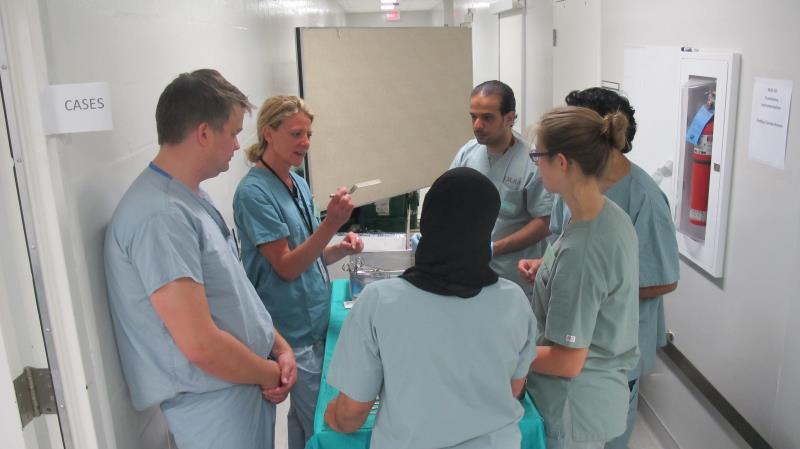
Canada's neurosurgery trainees hone their skills at a two day training course
An intensive two-day training course is helping Canada's neurosurgery trainees hone their skills before they take control of an operating room for the first time. Eighteen of Canada's top neurosurgery residents have gathered at the University of Alberta's Faculty of Medicine & Dentistry for the Canadian Neurosurgery Rookie Camp.
"This opportunity will assist them in what's sometimes a stressful transition, namely, transitioning from being a medical student to a neurosurgery resident responsible for sick patients with critical brain injuries and neurosurgical pathologies," explains Cian O'Kelly, an assistant professor in neurosurgery in the Faculty of Medicine & Dentistry at the University of Alberta and one of the event organizers. "It's a very hands-on, skills-oriented camp that gives them essential life-saving skills."
The Neurosurgery Rookie Camp is hosted by the Faculty of Medicine & Dentistry and the Royal College of Physicians and Surgeons. This year's Neurosurgery Rookie Camp is the fourth to be held in Canada, and the first to be run outside of Halifax. Organizers hope to establish Edmonton as the western Canadian site for the event in the future.
The first part of camp is focused on technical skills where residents are exposed to the tools of their trade and gain experience in how to use them. Some of the skills include drilling skulls and using plating systems to repair bone. While some of the skill sessions involve highly accurate simulations, others are decidedly more low-tech.
"We have a type of coagulation forcep that we use to pick up a blood vessel before pressing a coagulation button. We actually teach the residents using grapefruits," explains O'Kelly with a laugh. "We cut grapefruits in half and we give them the bi-polar forcep. They practice coagulating little strands of grapefruit. It's a good model for learning because it replicates what we do-and it also happens to smell good."
After the basic skills sessions, neurosurgery residents focus on sub-specialty skills within neurosurgery. Each station is realistic and clinically focused. Along with an emphasis on medical knowledge, the trainees also gain experience in problem solving, teamwork and managing acute medical crises.
O'Kelly believes the experience is great preparation for their work to come.
"The residents are in a position where they now have to make decisions and it's an abrupt transition. Then you throw in a whole new set of skills that perhaps they've only maybe seen briefly. It can be stressful if you're trying to acquire those skills in the real world and during critical situations where stress is high," says O'Kelly.
"Having a chance to practice these skills in a safe environment where you can stop in the middle of a procedure and say, 'Am I doing this right?', and get some immediate feedback from national experts is tremendously valuable."